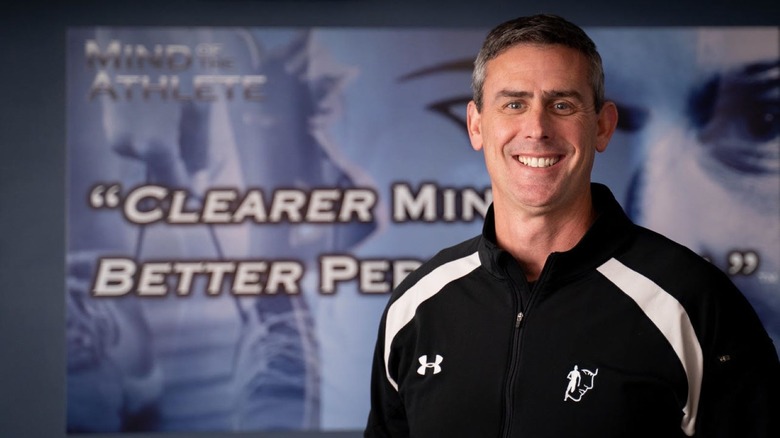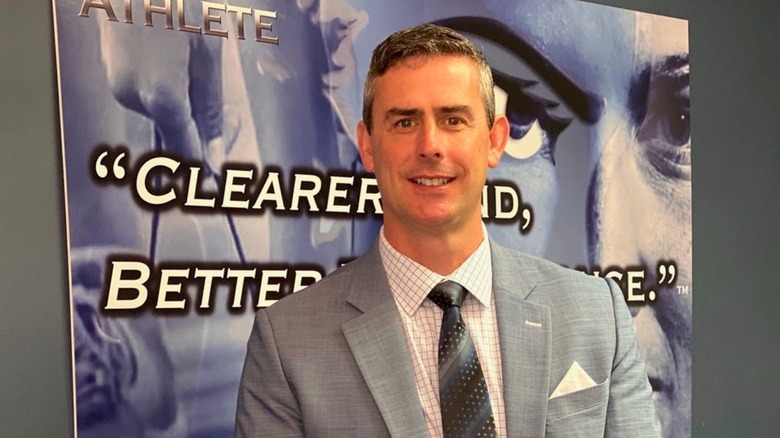When athletes get injured while training or competing, everyone expects them to take time off to heal. What about when the injury isn’t physical? How does the sports world react to athletes who take time off to heal their mental health? Historically, not very well.
That’s exactly what sports psychologist Dr. Jarrod Spencer wants to change. He wants to normalize athletes taking care of their mental health as much as they take care of their physical health, and he’s not alone. In the documentary “I’m Fine, (Not) Really,” mental health professionals and professional athletes shine a light on the often hidden mental health struggles that athletes endure and highlight why it’s so important to let them heal their minds as well as their bodies.
Ahead of the film’s release, Dr. Spencer spoke with Health Digest about why mental health struggles are the “invisible injuries” of the sports world and what can happen if athletes aren’t allowed to heal those injuries.
‘Mental health is an invisible injury’

In May of 2024, Naomi Osaka rocked the sports world when she announced that she was pulling out of the French Open because of her mental health. She later explained via a statement posted to Twitter that she’d been battling depression and intense social anxiety for years. The announcement was met with a lot of support, but also a lot of harsh criticism.
In talking about the incident with Health Digest, Dr. Spencer pointed out that everyone would have reacted a lot differently if Osaka had a physical injury.
“Had she stepped out because of a physical injury, like a knee injury, they would’ve given her a pass for, maybe, that requirement,” he said. “But in this particular case here, because it was an invisible injury, and oftentimes mental health is an invisible injury, we tend to not give that kind of empathy, or that pass, that sometimes we really do need.”
Spencer continued, saying that because we can’t really see mental health problems, it’s nearly impossible to know who’s struggling and how much. He added that we’re even less likely to see the struggles of people in the public eye, especially athletes, because it’s their job to perform. And since fans don’t actually see the “injury” it’s hard to understand why athletes would need to take time off to heal.
Removing the stigma

Dr. Spencer explained that another reason fans are more understanding of physical injuries is because society is still struggling with stigma around mental health issues.
“If you look at our culture and society, our culture and society has not been very friendly to mental health,” he stated. “Sports is a microcosm of our larger society, and especially regarding mental health. And what we see with sports and the challenges with mental health is just a bigger reflection of what we see in our cultural society in America today.”
However, Spencer believes that the stigma is beginning to fade, partially because so many prominent people, including athletes, have been brave enough to speak out about their struggles with mental health. He said that the athletes who have talked about their struggles are paving the way for a new generation of elite athletes to have the tools they need to deal with their mental health issues and live in a society that understands how important it is for them to care for their mental health.
Find your local station listings and airtimes for “I’m Fine, (Not) Really” at imfinenotreally.com. You can also visit mondocares.com to keep up with current initiatives, and follow them on Instagram at @MondoSportUSA and @MondoCares, and on Twitter at @mondocares.








